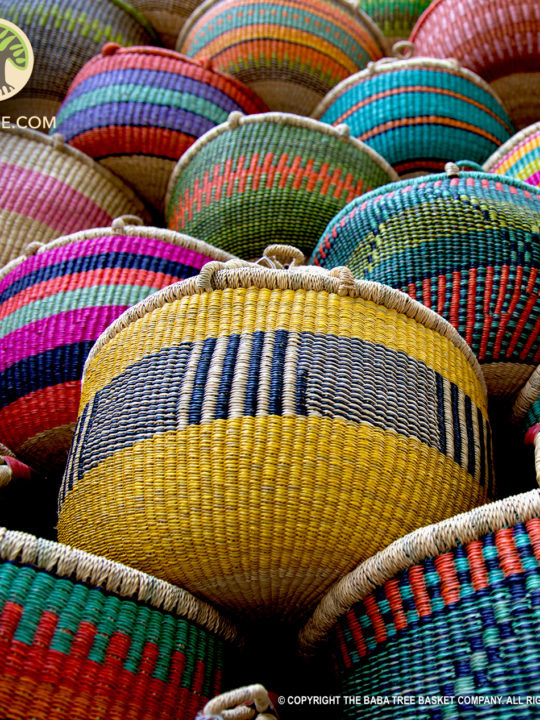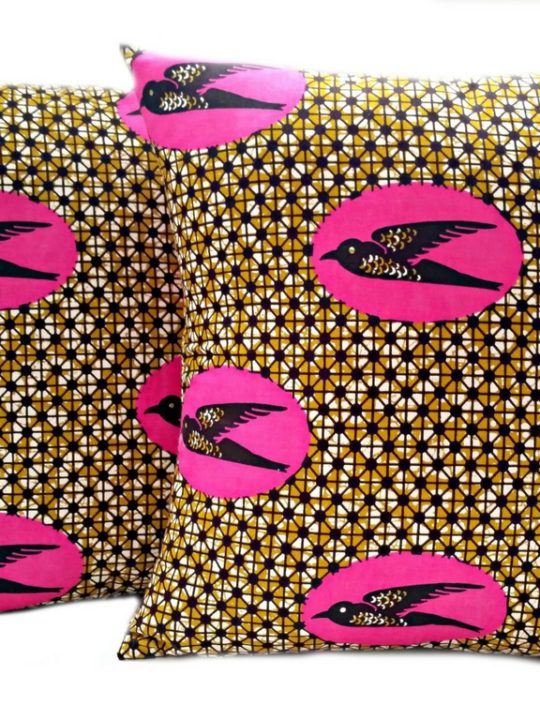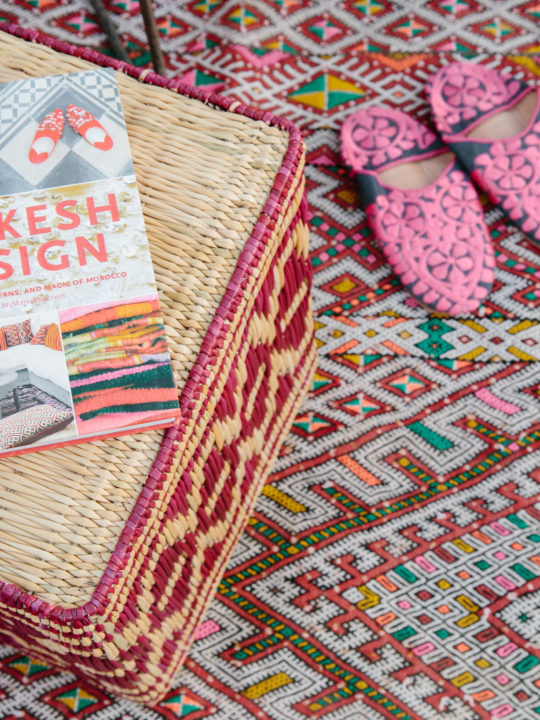Welcome to the first edition of Blueprint Africa’s Designed to Succeed series! I created this series for the distinct subgroup of entrepreneurs that create business opportunities based solely on their artistic talent. I call them artrepreneurs. Many artrepreneurs (myself included) admire the industry’s top designers but find themselves unsure of the practical tools and insights these seasoned veterans have used to build and keep their brands (and lives) functioning like well-oiled machines. The Designed to Succeed series will share wisdom from interviews with product and interior design professionals to highlight tips they picked up while building their brands and what keeps their companies running. I hope the series inspires budding artrepreneurs to achieve success even in careers that color outside the lines of the proverbial Excel spreadsheet.
For this first edition of Designed to Succeed, we speak to Yemi Onibiyo, the founder of start up luxury homewares company House of Arike. She believes her brand will set a benchmark by specializing in luxury home decor. Yemi says her African ancestry and London upbringing influenced her decision to launch House of Arike earlier this year. The start up will not focus exclusively on producing pillows or pouffes or chairs with African print but Yemi hopes to create staple pieces for each aspect of the home. “I don’t want to give anything away but let’s just say we are not all about cushions”, she says. Below the vivacious artrepreneur describes the 6 things she considered and sought out prior to launching her business.
“My longstanding love for interior design fused with the vibrancy of African prints formed this unique collection of staple luxury home decor pieces, primarily but not limited to soft furnishing. This range can be summed up by the statement Inspired by Africa, Designed for Living.”
Yemi Onibiyo
Lesson 1: Pick a company name that has significance.
YO: “The name House of Arike pays tribute to my parents. Arike is one of the Nigerian names they gave me at birth. Typically, when a Nigerian child is born the child’s parents give the child many names that have different meanings, believed to contribute to the characteristics that child will ultimately have so they take names very serious. In my case Arike means “one who is blessed on sight”. So I pay great homage to my parents and my African heritage by dedicating the company to them.”
Lesson 2: Stay plugged into the fashion world.
YO: “I have never studied fashion or design but it’s been something that I’ve been passionate about since I can remember. I love different styles and especially how you can define your own fashion sense, mixing the different influences you have. This also goes with interior design. You create your own looks, your own world. I believe you can tell a lot about a person through their fashion aesthetic or home. My love for African print stems from the many Nigerian weddings and events I have attended throughout the years, where I have bought the African print material “ankara” aka Aso Ebi and used it to make my own outfit. What I love is that the material/patterns are the same among the wedding party and guests but the style and outfits created are individual to each person. For me my favorite designers that use or have used African print are Duro Olowu, Lisa Folawiyo (Jewel by Lisa), Stella Jean, Toju Foyeh, Banke Kuku, and Anita Quansah. There are so many inspirational African print designers out there.”
Lesson 3: Find mentors – including strangers.
YO: “Definitely, Adebayo Jones is an amazing mentor to me. I was privileged to have met him a few months ago at an awards ceremony and ever since he has been so helpful in my journey. He has given me some great advice and has been such a source of inspiration. I truly admire this man. Another mentor (in my head) is designer Ugonna Hosten. Like me when she started she never had any design/fashion experience, in fact she studied Criminology at University same as me! Her story gave me hope and was the right push to enable me to start House of Arike. It’s not easy to just decide to change career paths, especially when it’s a path you hardly know much about or in which you have little experience. Hosten’s story and similarity was a great encouragement.
Lesson 4: Do not skip the business plan.
YO: “Its taken me some years to get to the point where I am now, on the verge of launching the business. I spent a lot of time researching, researching and more time researching. It’s not just about having the financial backing but it’s about knowing your market, your customer, the pricing, and how you can grow your business, not for five years but for many years. You can’t start any business without doing a thorough background check. A very useful tool for me was writing a detailed business plan which outlined the main objectives, my projections, where I saw my business in 1/ 3/ 5 /10 years. It’s hard because in your mind you think I haven’t even started so how can I think that far ahead. In this case I treated it like any adventure or project as you can easily get discouraged at times or fail to even start. The main questions that I asked myself were: Is there really a market for African print interior products? Why hasn’t anyone else started a whole home range? Is African print here today and gone tomorrow? One thing that I didn’t question was my passion. I think if I got stuck on the what ifs or the constant questioning I would never have started. With business it’s always a risk but you have to believe that this risk is worth taking. I definitely do.”
Lesson 5: Try to own all your raw materials.
YO: “At present the company’s product materials are made in Holland but the products themselves are made in England. Although we use Ankara cloth, we are in talks with textile manufacturers in order to make our own African print so that our customers know House of Arike products from sight, which will be synonymous with luxury and quality. If we pursue this, we will not rush in order to do it well, with our customers at the forefront.”
Lesson 6: Respect Africa as a Source of Inspiration.
YO: “I want people to know this is company pays homage to Africa. Africa does and continues to give birth to innovative and amazing products. Africa is and will always be a hub for fashion and design. I am so proud to be Nigerian especially, more so during these times. Africans are paving the way for design and fashion, and not just with African print. We have produced some well renowned designers. International design houses have been greatly influenced by African print and African designers. They have seen how influential Africa is to the world, so it is not surprising that they felt they had to incorporate Ankara into their own collections. To some Africa is finally coming into its own but to me, it is the rest of the world has caught up to what we have been doing for years.”

















